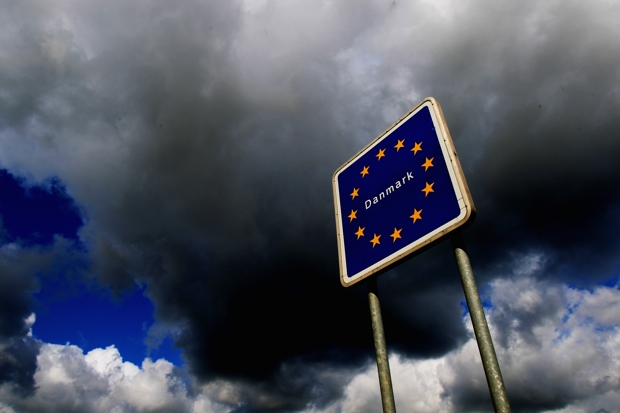Copenhagen
Denmark has had a difficult few weeks. While it’s used to grabbing the headlines for being the happiest country in the world or having an enviable work-life balance, lately the country has been hit by a torrent of criticism. Thanks to its tougher immigration laws, politicians have even had to deal with Nazi Germany comparisons. And it’s hurt – a lot.
Last week, Parliament passed new rules including the controversial ‘jewellery law’. This gives police powers to confiscate valuables and cash worth more than £1,000 from refugees. Never mind that few believe this policy will ever be put into practice.
It’s also made it much more difficult for those deemed ‘temporary’ asylum seekers to apply for reunification with their families, including children. International condemnation has been harsh – from former UN Secretary-General Kofi Annan to Chinese artist Ai Weiwei who has closed his exhibition in Copenhagen, in protest.
David Cameron was supposed to be in the capital last Friday but at the last minute, the visit was cancelled. More proof, it seemed here in Denmark at least, that standing next to a Danish prime minister who’s just been compared to Adolf Hitler, wasn’t going to help the British PM’s EU re-negotiations.
What’s been most surprising is that Danes, who are known for being direct, have been so shocked at the international reaction to it all. It was a similar response when the Mohammed cartoon crisis blew up in 2005. Politicians have blamed the media with Prime Minister, Lars Løkke Rasmussen, describing the legislation as the most ‘misunderstood bill in Denmark’s history’. The fact is, they seem to have sleep walked into this mess.
MPs have talked about the importance of having a fair welfare system; if the Danish unemployed can only receive benefits once they have exhausted their own funds, why shouldn’t this also apply to refugees? They also accuse the world of hypocrisy, pointing out that Switzerland and even parts of Germany have engaged in a similar policy of confiscating money and valuables. And, with 21,000 refugees last year arriving in a country of just 5.7 million, the feeling is that Denmark’s been taking more than its fair share.
But this is Denmark – apparently happy, liberal and welcoming to the outside world. Over the last decade or so, it’s become a beacon for humanitarian values, even building an entire ‘UN City’ in Copenhagen to prove its credentials. So why this desire to look so tough? Domestic politics of course.
The centre-right minority government was voted in last June on a promise of tougher immigration. It’s propped up in parliament by the anti-immigration populists, the Danish People’s Party. Together, they’ve been determined to signal to voters that Denmark is not a soft touch. The message to would-be asylum seekers is also clear – you are not welcome here. Unfortunately, they failed to take into account that the rest of the world was also watching.
What’s been more surprising is that the centre-left Social Democrats, who until last year were led by former prime minister Helle Thorning-Schmidt, also supported last week’s migration bill. But they’re already paying for that decision. A poll out at the end of last week showed that they’d lost 7 percent of support since last November. The majority of voters who’ve ditched them cited the party’s hard-line immigration policies.
Last Wednesday, Denmark was again voted the world’s least corrupt country in the Corruption Perception Index. But nobody was listening. If politicians care at all about Denmark’s international reputation, perhaps it’s time they focused on the message they’re sending to the rest of the globe.
Alex Forrest is a former political correspondent for ITV News. She tweets @_alexforrest.






Comments